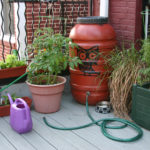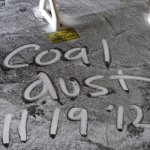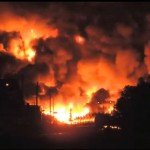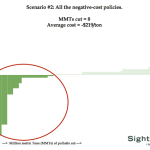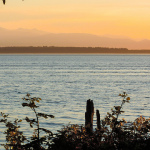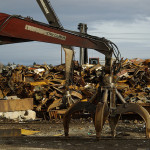Search Results
-
Weekend Reading 1/16/15
Serena Teju Cole nails it again. He had an excellent piece in the New Yorker on the Charlie Hebdo massacre. He describes how it is far easier to mourn the freedom-representing victims of a few unhinged individuals—and even easier if the killers are Muslim—than it is to name and challenge the violence against free speech and action carried out every day by our own Western governments. I love Aziz Ansari. I love him even...Read more » -
A Green Light for Using Rain Barrel Water on Garden Edibles
Is it safe to use rain barrel water collected from your roof to irrigate homegrown lettuces, strawberries, and tomatoes? The question is so straightforward, and yet the answer has been so murky. In the past, many sources cautioned against this use of stormwater runoff, while some, including Seattle Public Utilities, suggest it’s OK with water collected from some roof types but not others. As rain barrels proliferate and climate change...Read more » -
How Ronald Reagan and Bill Clinton Made Oil Trains Less Safe
Oil trains are not safe—a string of cinematic explosions has made that clear—and they’re not nearly as tightly regulated as they should be. This regulatory lapse isn’t just a one-off failure of the federal agencies charged with oversight; we’re in a jam that’s been decades in the making. Since Ronald Reagan, in fact. When the feds released draft rules for oil trains this past July, they also published a draft...Read more » -
The Top 14 of 2014
2014 was a big year for Sightline, inside and out. We took deeper dives into family-friendly urban policy, money’s influence on our democracy, and making polluters pay for their carbon pollution. We also continued our leading research on coal and oil exports out of Cascadia; traffic trends, transit funding, and rideshare safeguards; and a number of other key topics for promoting sustainability across the Northwest. And you, dear reader, you dove...Read more » -
Regulating Coal Hazards in Seward, Alaska, and Beyond
Northwest communities faced with the prospect of new or expanded coal terminals would do well to study their real-life impacts in other places. As Sightline has reported extensively, coal terminals have a marked tendency to produce chronic local pollution. To take just one nearby example, consider the Seward Coal Loading Facility in Alaska, which has plagued its neighbors for years and now faces serious legal actions because of its practices....Read more » -
Weekend Reading 12/19/14
Ted Have you wondered why the cast, promos, and maybe even the audiences for the new hit movie “Wild” (based on the 2012 memoir by Cheryl Strayed) include so few nonwhite faces? African-American writer Brandon Harris did; his essay “Why is Camping a White Thing?” poses a question that lingers like the proverbial pebble in the boot. Could Forest Schools offer affordable early learning in settings intended to connect the...Read more » -
What Do Oil Train Explosions Cost?
Given the nasty tendency for oil trains to explode when they derail, it’s probably worth asking what a catastrophic accident might cost. No doubt, the thousands of communities visited daily by oil trains would like to know what sort of financial risks they are exposed to. Unfortunately for these governments, the available data suggest that a reasonable worst-case-scenario explosion could do several billion dollars of damage—sums far in excess of...Read more » -
A Carbon Pollution Policy with All the Fixin’s
A purely regulatory approach to cutting carbon is like Thanksgiving dinner without the turkey. But just charging polluters without any other policies is like eating turkey by itself with no cranberry sauce or stuffing to make it delicious, no mashed potatoes, green beans and yams to round out the meal, and no pie to sweeten the experience. In Oregon and Washington, we want the full dinner. Here’s how serving up...Read more » -
What is Xylene, and What Does it Mean for Puget Sound?
It’s a safe bet that most people have no idea what C6H4(CH3)2 refers to. It’s a chemical compound that is better known—when it is known at all—as xylene, a niche product of oil refining soon to go into development on the shores of Puget Sound. It’s a change that has potential implications for the health of the Salish Sea, for oil trains, and perhaps even for gasoline prices. Because most...Read more » -
Which Way to Clean Industrial Stormwater?
Industrial companies—metal recyclers, printing plants, rail yards, petroleum refineries, and the like—have a smaller footprint on the land compared to residential areas and other businesses. But when rainstorms flush runoff from industrial sites, that contaminated stormwater can carry a toxic cocktail with an outsized impact on lakes, bays, and other sensitive waterways. So the effort to clean up Puget Sound, to make it hospitable to marine life and safe for...Read more »


